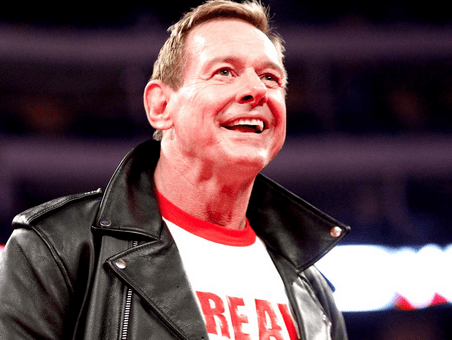
In October of 2004, the team at CNN’s Crossfire invited Jon Stewart to appear as a guest on their show. It was a fatal mistake, as it turned out.
From the moment of Stewart’s introduction, you could tell he was testing the waters—not sure of what kind of audience he was dealing with. Crossfire hosts Tucker Carlson and Paul Begala were not fans of The Daily Show, and they didn’t pretend to be—they attempted to match Stewart’s already-famous snark out of the gates.
Instead, Stewart launched into a quietly furious, devastating takedown of their show and everything it stood for.
“I made a special effort to come on the show today, because I have privately, among my friends and also in occasional newspapers and television shows, mentioned this show as being bad,” he says.
The audience laughs nervously.
“I felt that wasn’t fair and I should come here and tell you that it’s not so much that it’s bad, as it’s hurting America.”
Carlson and Begala try to defend themselves. We’re a debate show, they insist.
You don’t debate, you just divide people, Stewart argues.
It’s not like The Daily Show is perfect, they accuse.
The Daily Show is a comedy show. You’re supposed to do real journalism, Stewart counters.
Carlson and Begala struggle to find some footing, but they’re out of their league.
“I thought you were going to be funny,” Carlson whines. “Come on! Be funny!”
“No, no,” Stewart bites back. “I’m not going to be your monkey.”
Crossfire was canceled a few months later.
The Importance of Political Comedy
If the United States of America is indeed, as de Tocqueville had it, “the great experiment,” then perhaps it’s not surprising that it has more than its share of blunders.
Americans tend to forget that, on the world stage, the USA remains a newcomer, and her way of doing things is going to take some fine-tuning. Sometimes, those course corrections and gambits pay off in balanced budgets, equal pay acts, emancipations and civil rights movements. And sometimes, well, sometimes you end up with Donald Trump being an early frontrunner for the presidency.
There are a lot of upsides to this, and one of them is that it’s given American comedians plenty of material. From Roy Rogers to Richard Pryor, Carol Burnett to The Onion, blustering politicians who always seem more wealthy than wise have been easy targets for the spitballs.
And while comedy is often written off as a raucous good time, it does important, field-leveling work in America.
“Suppose you were an idiot, and suppose you were a member of Congress,” Mark Twain once wrote. “But then, I repeat myself.”
Comedy is an art, but it’s a sacred one, in its way: It humbles the proud. Just because comedians make us laugh doesn’t mean they’re not doing serious business.
Enter Jon Stewart
It was into this rich tradition that Jon Stewart found himself. From a Jewish family in New Jersey, he went to college at William and Mary before finding himself a bit adrift in the New York City comedy circuit.
In January of 1999, he replaced Craig Kilborn’s short-lived run on Comedy Central’s then-fledgling attempt at a news satire show.
Up to that point, the show had focused on pop culture, but Stewart had the acumen and off-the-cuff wit to restructure it around politics.
It was a great time to do so. Bill Clinton was being impeached and, shortly thereafter, America underwent an election rife with comedic fodder in the style of hanging chads, Al Gore’s stiff dopeyness and George W. Bush’s syntactical blunders.
But those jokes write themselves, and Stewart’s true genius was revealed as partisan news outlets began drawing thicker and darker lines in the sand.
Stewart’s legacy will rest less in how he made a mockery of politics—America’s been doing that since the Boston Tea Party—than in his gleeful evisceration of the 24-hour news cycle. CNN and Fox News were his most frequent targets, and there was grim pleasure in watching Stewart and his team of news correspondents build careful, frequently devastating cases against their bias and bloviation.
The Jon Stewart Legacy
Some complained that Stewart was too hard on the GOP, and it’s true, Fox News found itself in his crosshairs more frequently than, say, MSNBC. But Stewart wasn’t so much anti-Republican as he was anti-hypocrite. As he said on Crossfire, he enjoys a rigorous intellectual debate. What he has no patience for is bullcrap.
There was his smirking, sneering takedown of CNN’s endless, empty reporting on the search for Malaysian flight 370 and his withering, astoundingly funny parody of Glenn Beck’s conspiracy-centric fear mongering.
But frequently, his biggest laughs came from his dumbfounded, “tell-me-you-didn’t-just-say-that” facial expressions inspired by absurd clips of talking heads culled from the news. You probably didn’t always agree with him, but you couldn’t doubt his sincerity. He was, as Rolling Stone called him, “the last honest newsman.”
In those moments, he was one of us—giving voice to our outrage, our irritation and even our weariness. So perhaps Stewart didn’t so much change the news as he changed the way we watch the news.
Although he’s often called a satirist, he could be more rightly called a fact-checker. He and his news correspondents tried to teach viewers how to watch the news with a grain of salt, and they did so successfully: A 2012 Pew Research study found that The Daily Show viewers are the nation’s most informed about national and international affairs.
And with today being Stewart’s last show, his torch is passing, and it’s safe to say there’s an air of skepticism surrounding the ascension of Daily Show-host-in-waiting Trevor Noah.
Time will tell how well Noah fits into the admittedly massive shoes being left behind, but regardless, Stewart’s legacy stands secure in our perceptions of politicians and talking heads. When a slanted news headline makes you roll your eyes or an op-ed columnist inspires a breathless Twitter rant, you’re proof that Stewart has made a difference.
Stewart removed the gap between news anchor and news viewer. He informed on our informers. He reminded us that there’s a lot more to watching the news than just watching the news.
Because in the midst of all the laughter, putdowns and puns, what Stewart was trying to do was something very serious. He was trying to tell the truth.






















